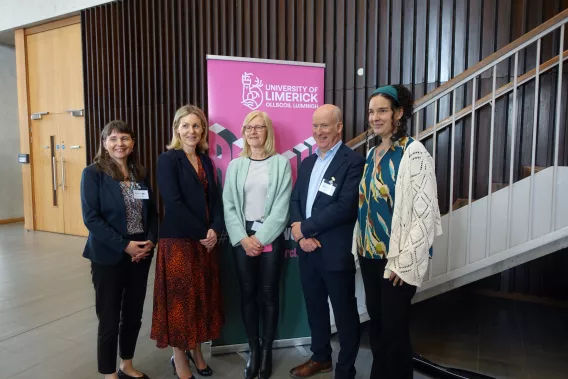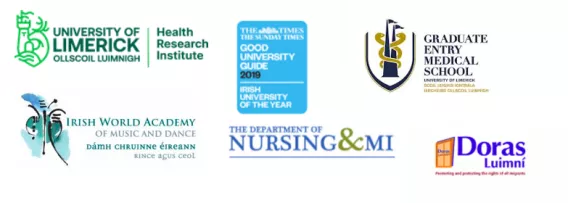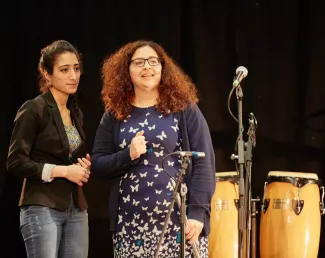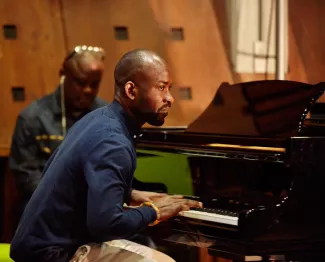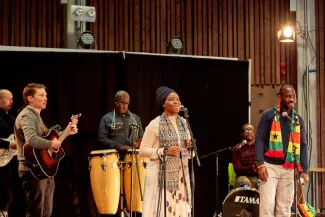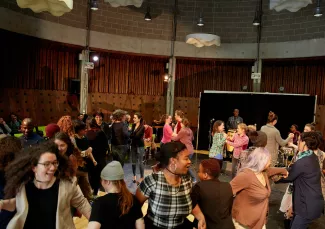
The goal of Participatory Health Research (PHR) is to maximise the participation of those whose life or work is the subject of the research, across all stages of the research process.
Research is not done “on” people as passive subjects but “with” them to provide relevant information for improving their lives. Arts-based Research (ABR) focuses on the role of artistic practices as research methods to develop and sustain culturally informed, creative, whole-person research partnerships and projects.
Work in the HRI within this area aims to ensure that our research is aligned to the needs of people. In line with UL’s focus on equality and human rights (EHR), equality, diversity and inclusion (EDI) and the UN SDGs, one challenge being addressed in the HRI is that posed by the global phenomenon of migration and the importance of involving migrants in health research. The role of music and singing as culturally attuned methods to support migrants' involvement in health research is of particular interest here.
This research area is represented by the newly constituted, interdisciplinary Participatory and Arts-based Health Research Unit (PAHRU), which is co- directed by academic leaders in Primary Healthcare (School of Medicine) and Arts Practice (Irish World Academy of Music and Dance). The unit is a World Health Organization Collaborating Centre for Migrants’ Involvement in Health Research.
Through the PAHRU, the HRI will continue to support the development of the National PPI Ignite Network (2021-2026), which is funded by the Health Research Board and Irish Research Council.
With the ultimate goal of building capacity for public and patient involvement (PPI) in health research on the island of Ireland, the PAHRU will conduct cutting-edge research to build evidence of meaningful and sustainable PPI over the next five years while driving a better understanding of the role of arts-based methods as participatory strategies for involving migrants in health research.
